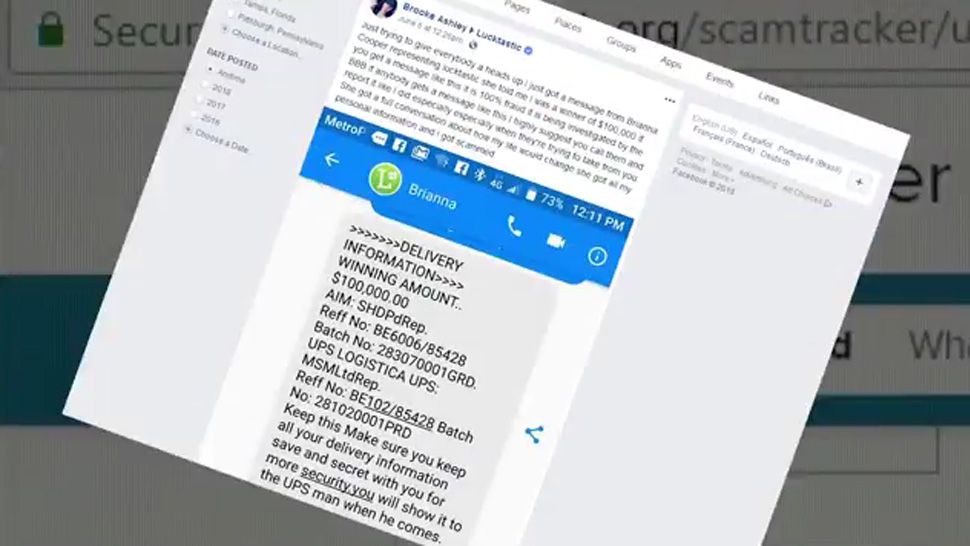Diane Marino, 69, was on Facebook recently when she received a message she thought was from an old friend.
"It said, 'Hey Diane, how ya doin?'" Marino explained.
She responded, asking, "How are the girls?" That, she says, is when things got a little fishy.
"It said, 'Did you hear about the money I won?'" Marino continued. "I said 'Nooo.' And they went on."
The sender gave her a name and number to call so she could win, too.
"What they did was they hacked my friend's account, because it was her picture, but the way she talked, I knew it wasn't her," Marino said.
Nearly half a million Americans victimized
In the past three years, the Better Business Bureau says nearly half a million Americans have reported losing more than $300 million through sweepstakes, lottery and prize scams.
Victims can report these scams to the BBB scam tracker to help warn others about the sneaky methods scammers use to make you believe "You've won!" then turn around and steal your money.
"If someone's claiming you won a prize or won free money and then they're asking you to send money to pay for something you want to stop. Don't do it," said BBB spokesperson Bryan Oglesby.
The ways they get you
Scammers contact their victims in many ways, including social media, email, regular mail, online pop-ups and cold calls, and they can be very convincing.
“They call and tell you you’ve won a lottery or prize or money and get you all hyped up and all of a sudden you have to pay a fee to receive that -- taxes or what not,” Oglesby explained.
Another tactic scammers use is to falsely claim they are Publishers Clearing House.
"That you've won a prize, you've won $50,000 and we're coming to your house to give it to you, but we need to pay these taxes," said Ogelsby.
Social media effect
Using Facebook, Oglesby explains, adds a whole new level to the scam.
"Unfortunately, they can hack accounts or create duplicate accounts of your friends and then send you a message," Ogelsby said. "They know if you get a message from a friend, you’re more likely to believe it,”
"They're scums," said Marino. "Sorry, but they're scums. That's a scum bag thing to do to steal from people."
Now, Marino didn't fall for the scam, thank goodness, but many others in America today do.
Keep your guard up
With all of these scams, the best defense is education and making the public aware of them.
Keep your guard up -- if you think you've won a sweepstakes or some other prize and someone wants money from you, let that be a warning it's a scam.
Whatever you do, don't send it!



